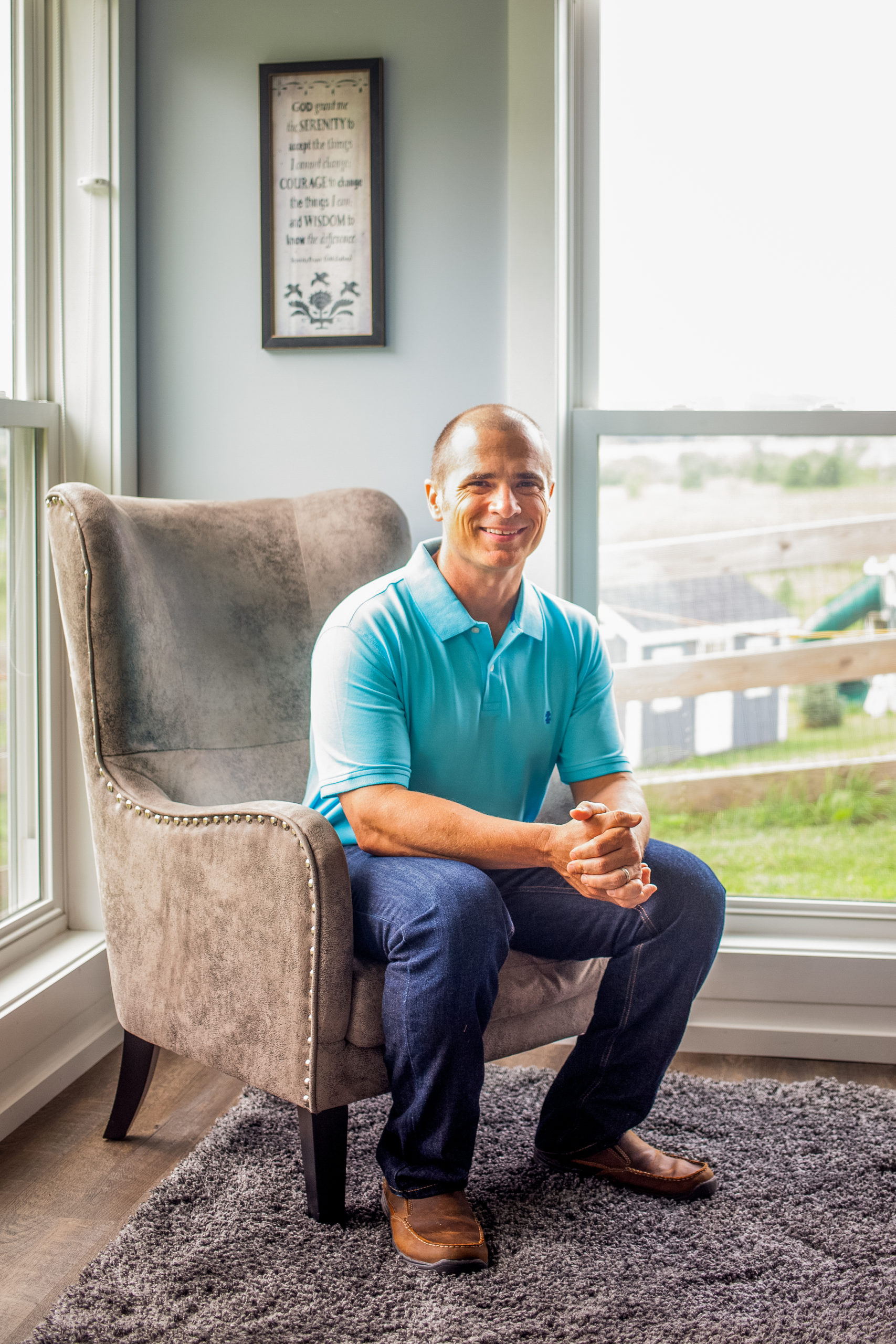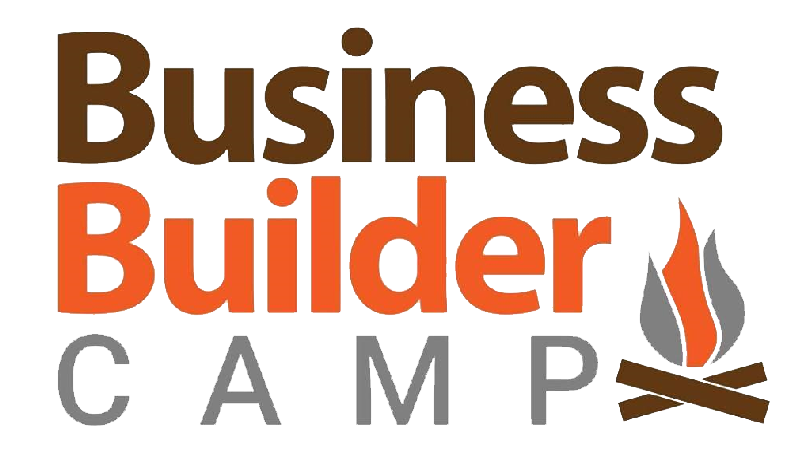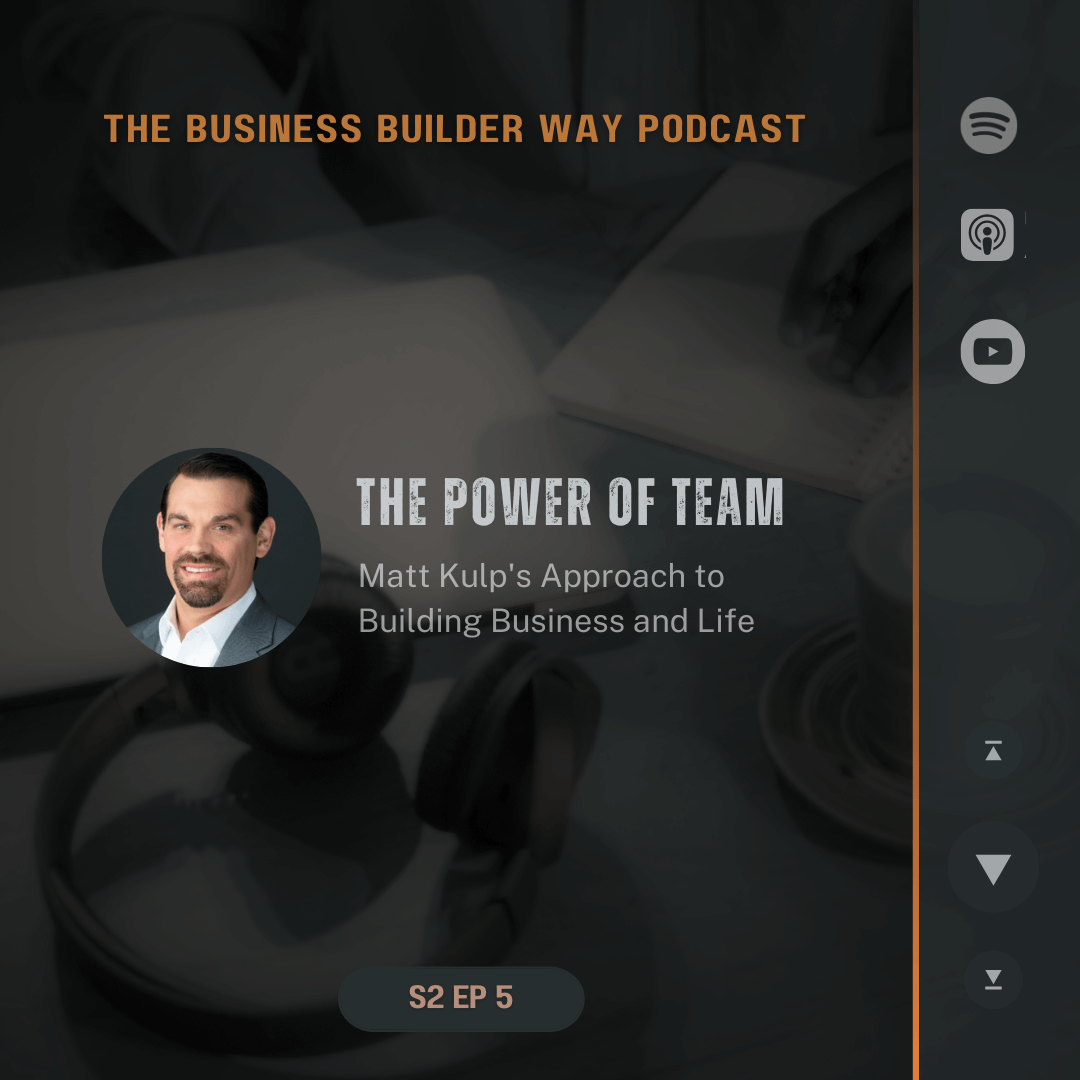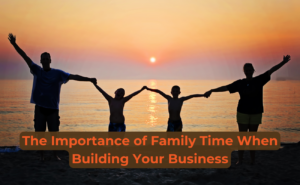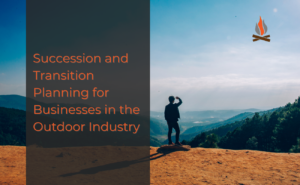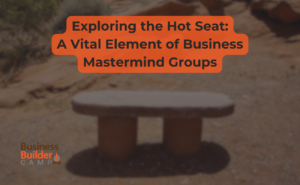Wayne Herring
00:00:0400:01:13
Hey, Matt Kulp. Good to have you with us today on the Business Builder way. And what we're doing with this, series of podcast interviews, YouTube videos is sharing who the business builders are, who you are, what you're building, what you're creating in business and in life also since that's important to us. And we're doing this so that anybody who's interested in joining our group knows who they're going to get to interact with, who's gonna ask them questions, who's going to carry some of their dreams and goals on their heart, which by the way, you're very good at. Not only on your heart, but you also use that journal to write down what other people have said, they're trying to create so that you can remind them and hold them accountable later. But, yeah, I wanna get, People that might join camp to get to know you and then people when they do join our group, make sure that they have a way that they can learn more about who you are, before they meet you for the 1st time. So, could Matt just stay pretty open for him here? Could you share a little bit about, who you are and what you're building and, both life and business.
Matt Kulp
00:01:1400:04:08
Yeah. You bet. Thank you, Wayne, for having me and grateful for the opportunity to be a part of your community and, the business builder community. It's it's It's just been an awesome opportunity to be a part of others' lives, to pour into others, and also to to, you know, not to sound selfish, but Also, to receive as well. Mhmm. And, you know, I'd say that's a big part of, you know, he said, you know, who does Matt Culp wannabe, who do I desire to be, is someone who pours into others, whether that be through mentorship or We're just helping other people grow, whether it be in business, or whether it be my family, or whether it be in on the nonprofit side of things. So I have a lot of involvement with Men of Iron, which is Being a part of other men's lives and walking alongside them. So that's who I desire to be is someone who invests in others, not from a dollar perspective, but from a perspective of of being being in person with someone else. So, but, grateful for my wife and 4 children. And, started with legacy planning, 21 years ago. Actually, August 14th was technically the 21st anniversary, so that's exciting. It's humbling to think back over the last 21 years. Just the amount of growth and, you need you look back, I think all, you know, we oftentimes think about All the good things, but then we also think about some of the pain and the character building opportunities that we went through over that 21 years, and, it's just humbling to just kinda look over that period of time. I mean, when I started with Legacy, I mean, we're we're just a small little shop, and, You know, started from ground 0 of trying to build a client base around comprehensive financial planning, and We've continued to build that and and and grow that out, and specifically helping business owners, figure out their their future plans around their business and transitioning and how they have a successful transition. Because when you dig down in the numbers, Most business owners don't transition on their terms. They don't transition the way they thought they would, when they were going through it, and we're just trying to help that desired outcome become reality. But, it's been a great journey. We're now a firm of approximately 35 people in 3 different locations. And, You know, it's, to be in a leadership position is I'm grateful for. I don't take it for granted by any means. We're as good as our people are, and that starts with us. Who are the leaders in our firm?
Wayne Herring
00:04:1000:06:06
So you are you're a partner of Legacy. You're not the founder, but you're a partner and, essentially, you're owning your piece of the business. So I'm going like this with my hands and putting it out On audio, people wouldn't see that, but there's there's a chunk and that's that's your piece. And you're working with business owners, almost exclusively. And you're building your own business. You're you're you're a partner one of of several, but this is it. So, we have people in our group who are founders. We have people who have built a business and sold it. We have people who are 2nd generation family. And I just, earlier today, was working with one of our members who's actually the 3rd owner that came from within the business. He's not a family member, but it's transitioned multiple times, to employees who are key employees, who then went out and borrowed money to be able to buy the business. In your case, you're a you're a partner. You've kinda grown up in this business. You got that, chunk right there. So there's 2 things I'm interested. I wanna ask a bit about, Like, how you help business owners because you bring something really unique to our community because they get to have, your, brain and mind, whether they're a client of yours or not, which is really beneficial. I feel it run things past you and hear the things you think about. And then also, as you said, you're you're building your team and your group. So tell share a little bit about, like, what paint a paint a picture of what does your group look like. It's you, and Corey, is in our right handers group. She's your, yeah, right hand person, integrator, some people might call her. And then you have other, you know, junior advisers and things on your team. So could you Paint the picture of of your business like that, so people could understand.
Matt Kulp
00:06:0700:09:37
Yeah. You bet. So kinda starting from, like, the the firm perspective of it and the ownership. So I'm a partner with 5 other partners. There's there's 6 of us in total, and, I would consider myself a 2nd generation owner. So we're not a family owned business, but I'm as you mentioned, I'm not a founder. So I've Bought into Legacy, our founder Jan Grable. So we have a 1st generation of owners, and then we have a 2nd generation of owners currently, and our goal is to succeed them, to build continuity in the business, and that we eventually have a 3rd generation of owners. So, you know, what what comes with that responsibility as an owner, we can't just show up. Like, we gotta show up, and we've gotta be intentional. And part of that is that we have, forming pieces of our business, or If you wanna call it divisions or or segments of our business. And that first is, in no specific order, is high net worth families. So our our office in Westchester, Rob Wormuth and Kevin Donahue, drive that team in Westchester working with high net worth clients. So that's, like, Net worth of 50,000,000 or more. There might be a business involved in that. That might be generational wealth, and they help in that management. They have a process around that. The the segment that that that I'm helping to drive is business transition and then helping business owners to think way in advance of their transition of what they wanted to look like So that when they get there, things happen the way that they had planned or wanted them to happen years in advance. My the the thing I like the slogan I like to share is time equals options. So the more time you have, the more options you have, the less time you have. In those cases, the less options you have. So I help to drive the team. As you mentioned, Corey Neath. I would say officially, she's our integrator. I'm more of the visionary of of our team. Our team is comprised of 8 people, and Corey has got her finger on the pulse managing the day to day operations of of making sure that we're we're running as smoothly as we possibly can, continuous improvement. You know, that's one thing that we're working on right now is is is lean lean management, and trying to be as As effective as we possibly can with our with our people being a a critical piece of that of that improvement. And then, The other part of that too is I'm my practitioner. So, we are working directly as a team with with our people, or with our clients, I should say, and and helping them with designing their specific customized plan around what they're trying to accomplish. That's really the operational side of it. 1 once we have someone that becomes a client, and we have clients that have been with us for over, well over 30 years, you know, Jan Grable has has been in this business for over 40, over 40 years. But, essentially, there's a service component that our team that our team manages. So Mhmm. So I'm I'm a I'm a I'm a partner. I would say I'm a I'm a a leader for our our segment, which we call business owner advisory services, and then I'm a practitioner as well.
Wayne Herring
00:09:3900:11:39
Nice. Yeah. And and you've been working you're in a business where, as you said, you're a practitioner, so you've been the You're the one that works with these family business owners who may be 20 years from transitioning in the business or 10 or 5. As you said, you know, the more time for them, the better. But you've been the expert. You've been the technician. You've been the one that has helped them understand and anticipate what What their likely financial needs are when they transition the business so they can prepare and you coordinate with A a business broker expert who can do evaluation today and help them see the things they'd need to do to get the business to the place where they'd want it to be and know what the different options are for internal transfers, external, etcetera, so that they don't get to that spot. And they're like, uh-oh. I I don't seem to have any options. It's not worth what I thought it was, etcetera. So you're doing that, but and and that's a hard thing because of the high skill level knowledge required to transition to other people. But you've been working in that team of 8 to put processes around how to serve those clients, and you've been putting Time and energy into developing humans so that they're just as capable of handling, those situations as you are. Right? You've been real on a real journey to to build a real business, in a in an industry where a lot of times the the one who is the financial planner, really does most of the work, and they're really necessary. And they can't take time off, and they would have a hard time someday transitioning. How like, when did when did you make the decision that you wanted to really turn this thing into a business that you would be able to get some freedom from? Should you choose to? Should you want to?
Matt Kulp
00:11:4000:15:47
Yeah. So I'd I'd say a couple things is one of the the huge benefits that I have as a Practitioner working with business owners is I get to see every day that that I'm working and and communicating with with our business owner clients. I get to see in into a window, what they're going through in their life, in their business, in their family, in their community. And and I've seen those who have done it really, really well and those who have not, and everything in between. So I've taken a lot of notes. You know, you gave me this this great book. I take a lot of notes in this because I document that, and I, like, I wanna remember that because I'm like, wow. How did they do that? Because I wanna do that. And one of the things that I saw, and I'm gonna give credit to Tom Garrity at Compass Point consulting on this is, there's this term language called hub and spoke. So if you think about a wheel and a bike Mhmm. You got hub in the middle, and they got all the spokes around it. Right? And Many businesses can unintentionally become hub and spoke, meaning the owner is that hub, And the spoke is all the decisions that are being made on a daily basis, meaning people on the outside of those spokes, and they're going if a business is a hub and spoke where it relies on that business owner to be there every single day to make those decisions, which there's many of them that come in and out of that. If people are not empowered To be able to make some of those decisions, then that be then that business becomes a hub and spoke business, which means that if you take the hub out of the middle of that wheel, he got major problems. That that wheel's gonna collapse, or that business isn't worth maybe what someone thought it was because all the value or the majority of the value outside of any assets they have is in that business owner. If you take that business owner out, well, there goes your value. Who wants to pay for that? So I recognize that years ago in in the work that I had done with Tom Garrity and seen him in action working with family businesses and privately held, closely held businesses. And I was like, I do not wanna be that hub and spoke. I don't wanna wake up 1 morning saying, I I wanna transition. I wanna move to another chapter, but everything's going in and out It's all about me. I didn't want it to be all about me. I still I don't want it to be all about me. I want it to be an opportunity for people to be a part Something really special that we're building, and then to be able to take personal ownership, saying, hey. I was a part of creating that. And, I mean, to me, I've always been a team guy. I mean, the the sports that I grew up playing, football, baseball, wrestling, and even though wrestling's an individual sport, It's very team based because you've gotta break through a lot of different barriers of working together, grinding, and, you know, to to build, to to be able to perform, and that's no different here. So I I would say that's those 2 examples of seeing how others Have done it well or not done it well and everything between. And then the experience with the hub and spoke through Tom Garrity and and seeing that in play on how teams start to get built. And this is what we talk about often in our weekly business builder group is is just that, like, I I would say probably the majority, maybe 80 to 90% of our conversations that that we have in our weekly business builder is about people, About developing people, about helping people step up, or, you know, maybe they're going through a law, like, how do we help elevate their game? Because we wanna see them grow. We care about them, and we wanna keep them. And I think a big part of helping people Stay and have a long tenure with a business is helping them to grow as a person, which doesn't always feel good. Right? There's Character building opportunities there, but, like, that's the necessary stuff that has to happen in order to avoid that hub and spoke.
Wayne Herring
00:15:4900:16:12
Got it. So recently you went on a 3 week vacation. And I I think that's important to share and talk about here, because one thing is I know that had to do with helping you not be stuck in the hub and spoke is partially why you did a 3 week vacation, but also you did 3 big 3 week vacation because
Matt Kulp
00:16:1200:16:13
You're working to
Wayne Herring
00:16:1300:16:30
be an intentional dad and parent, and it's fun. And a lot of people wanna be an entrepreneur to get freedom, and they never quite get it. And you you just put that thing in your calendar, and then with the help of your team, made it happen. So could you talk a little bit about the 3 week vacation?
Matt Kulp
00:16:3100:19:33
Yeah. You bet. So, that that three way vacation, I would say, was more of a sabbatical Versus vacation. Because, oftentimes, we think of vacation, we think about, like, just kicking our feet back and, Hey. It's great great 3 weeks. It was anything but. So I'm I'm I'm big into Serving, as I mentioned earlier, just the servant leadership mentality of putting others before ourselves. You know, We talk about humility. Well, I think humility starts with thinking of oneself less. So that 3 week sabbatical, We had planned for it. The end of 2020, 22 at at the end of 2022, Corey and I sat down and I said, Hey. Like, I think we need to do this, for a couple reasons. Obviously, there is a personal element to it, and I'll talk about that in a moment. And then the 2nd piece of it was allowing people to grow. And I I wanted to see, you know, what am I blind to? Where am I holding other people back from growing? Because I'm coming in and sometimes, like, I'm a bull in a China shop. Like, And and to if we actually remove ourselves from that, then we can really truly see where we may have been blind. And also too, so for Corey, that gave her the opportunity to have her hands in the wheel and really drive it and and really, actually talked about this this morning. I mean, a Wednesday morning bible study with with, about 10 to 12 other men. And just, the 1 gentleman just talked about his experience as a father and just shared about how, you know, he had hit turbulent times with With his son and that sometimes you just gotta let your kids fail, like, their successes and their failures. And that was some of the premise behind us. Not to say that I expected my team to fail, but to give them that opportunity to go get it. And, hey, you know what? We might swing and miss. And that's okay, because that's a learning opportunity. And then on the personal side of it, We went this was the 1st year we did this, whereas we redid a family, missions trip. We went down and we served in, Page, West Virginia. It was an outstanding experience. It was hot. They were they were long days. We were helping families in that community down there, really with work projects. That that just to serve others in that capacity was, I just say, really good for for our hearts, but also too as parents, you know, you're in a you're in a daily grind, and, you know, we have almost 3 teenagers, which It's just like the the wires seem to start to get somewhat disconnected in the teen years, and we just wanna keep them grounded and and, Get out get outside of our our small little pond and and, see what other people go through in the world. So that was part of that big that that I'm I almost said vacation.
Wayne Herring
00:19:3300:19:34
Yeah. Yeah. Yeah.
Matt Kulp
00:19:3400:20:20
3 week sabbatical. And then also to, we did do some travel. My son's heavily involved in baseball. We Made a trip down to Georgia and, you know, then we had a couple days in between. But, it was it was a very busy 3 weeks. It was a successful 3 weeks. Definitely felt, a new level of energy. Was super excited coming back from our team and just getting the reports, but then also seeing the growth of others. And, were there some little fires yet some little stuff, but, Like, there was no 911 emergencies. I mean, there were some some things that came up, and the team handled it, and the team did a great job at it. And, It was it was a pretty awesome experience. So one
Wayne Herring
00:20:2000:21:57
thing you mentioned there was, baseball. And it's you know, I I get as much out of being in business builders as as Everybody who's a member does, I think. Maybe more. And so I've got, like, a dream job. And I've learned I learned from you sharing Openly, the journey of your son who is, pretty big into baseball. And he you've been working with him, helping to create opportunities so that he can pursue his dream of, You know, collegiate baseball at a at a high level, and he's a very good pitcher. And so the the things that you Show us about him. And it's obvious to me, this is not a thing where Matt always wanted to be a pro athlete. And so you're living your life through your son. It's not that. It's you are just trying to help him, and it's definitely his dream and his thing. And I I don't know that there's any I don't really have a real question about that. I just wanna acknowledge that, it's Helpful to me and other people in your group. And when you share openly, and same thing with anybody else, the things that they're helping create in life and their family. You just talked about going to a bible study with 12 other men. And for me to hear, so Matt is investing that time in those other people and in his own spiritual development. That open sharing is really helpful. So thank you for doing that.
Matt Kulp
00:21:5700:23:48
Yeah. You bet. And and, I'll just mention one quick thing on that is, you know, we do have 4 children. And I'll say that just like just like in our team, my wife, Christina, and I are trying to help our kids find their sweet spot. Because I'm a big believer that we are all very uniquely created. That we have been built a certain way to do certain things, and part of our journey in this life is to figure out ours the things that we're really good at in areas where we can provide influence, But also too to understand that there might be some things that we're not as good at, and that we don't necessarily need to focus on those things, but let's focus on where we can get a mile deep and an inch wide. And that's what we're trying to help our kids do, so that as they're finding their sweet spot to invest in them, encourage them, Understand there's gonna be failures along the way, but, again, those are, a lot of times, are successes. But help them find The things that they've been uniquely created at and potentially can drive some influence in. So we're we're seeing that right now with our son, who's our oldest. But then each of our our 3 daughters, we're helping them in that process too. So, like, right now, he's getting a little bit of the limelight, but, you know, there are some really awesome successes that we're just seeing in our daughters, that is that is really exciting and encouraging because, you know, at home, we talk about, like, yeah, athletics are great and whatnot, but eventually, there's there's gonna be a last page to that chapter. Tucker. And that's not how we define ourselves, but that's not how we should define ourselves. Right? We should define ourselves in And how we've been uniquely built to do certain things that we can be really, really good at, and we can help others with doing that. I just wanted to put that out there as well.
Wayne Herring
00:23:4900:24:39
Yeah. That's excellent. Two more questions. One is, So I have observed you going on a health journey, an intentional health journey. Partially what we're doing Business builders is being intentional about creating our business, and we talk about profit and loss, and we talk about hiring people, and sales, and marketing, and How to use the latest artificial intelligence tools. We work together to do that, and we read books that are very business focused. And if a business builder isn't healthy mentally, spiritually, physically, the business is Probably gonna suffer and not thrive, and they're just not gonna find as much joy. So I know that you've worked with, Buddy Tichinski, who's another a member of the group, and his business is integrate Integrative Health, and you've gone on that journey. Can you share a little
Matt Kulp
00:24:3900:24:39
bit about,
Wayne Herring
00:24:4100:24:44
What you're doing and what you're pursuing in the area of health?
Matt Kulp
00:24:4600:26:56
Yeah. You bet. So, the experience has been great With Buddy both from, I'll say so so some things that I have in my life personally are of a family history of heart disease, And, I I'd also say some of my my history in athletics. I've I've got things going on in my back that that, I've got damage. I've got back damage, and, like, one of my goals in life is not to have back surgery. So, for me, it means that I need to be proactive, and that's how I would define peak integrative, is a proactive approach to your health. So whether that's your diet, whether that's your exercise, whether that's what kind of tests you get done, like, heart tests. Like, I'm just, I did a heart test. No. I'm sorry. Not heart test, but Blood tests earlier this year, and now we're like, we're proactively, like, we've identified a couple things like, hey, this is a little high. Like, we should we need to get better in this. Okay. Now how do we do that? Alright. Well, here's what we gotta do, to be proactive. The same thing as far as, like, bodily health. Like, If if I can't move because my back's all knotted up, well, how am I gonna exercise? Right? So Buddy is helping me on that side of things So try to be able to be able to live a an an active lifestyle. And the other piece is, like, I just got done doing a sleep study a sleep study test. Oh. Also say that I applied for life insurance just real quick, which just blows my mind because, like, a life insurance company is like, why are you doing a sleep study test? I'm like, I requested the sleep study test. It wasn't you know? Yes. They, like, they said, hey. We think you should do that. I'm like, yeah. I wanna do that. I wanna be proactive. And the insurance company is like, You know, what's wrong? Why did you, you know, do this? I'm like, there's nothing wrong. I just wanna be proactive. So anyway, that's how I would define peak. Integrative is a pro it's a proactive versus reactive strategy to to our health and and to, you know, Trying to potentially avoid some of the pitfalls that might happen in the next 5, 10, or 15 years potentially.
Wayne Herring
00:26:5600:27:37
Well, it's proactive and it's cocreated, meaning that they require the person who's the client, you in this case, to do their part too, which you are. Last question. Yeah. Last last question is, Matt, I wanna help people that join to get an idea of how to do business builders well, how to how to use this program. And this could extend to any mastermind group they're in or any Coaching, you know, retreat that somebody would go on, not just limited to what we do, but I I think you do the work that we do really well. In fact, I caught you taking a nap at the last time we had a live event on the grass, And you're laughing, but In
Matt Kulp
00:27:3700:27:38
the break, by the way. In the break.
Wayne Herring
00:27:3900:27:59
During the yeah. Yeah. Yeah. During during during the break time. But that that was an example of, you doing some intentional work. So what pointers would you give to somebody for how to really engage with mastermind coaching process, live events. How do they get the most out of our program or somebody else's?
Matt Kulp
00:28:0000:29:08
Yeah. So my perspective is, when I joined business builders is the my mentality is to try to give more than I receive. Again, coming back from a servant leadership perspective, if I can pour into others, like, that creates accountability with others of wanting to do the same thing. And that's what I see in our group is that our group shows up. It shows up intentionally of wanting to pour into others before they're looking to get something out of it. So I think that is Number 1, and I'd say number 2, is to document, keep notes, journal. You know, that's why I've got this. You know, I'm getting ready to get through the first. I do both sides of the page, but journal, I can look back, you know, from, you know, back to April 16, 2021, when I started writing these notes and, you know, all our our weekly meetings, like, I can go back and and look and see what someone had What was on their mind or what was troubling them and be able to reference that. So, I mean, I think if if we can do those 2 things really well, we have a great experience.
Wayne Herring
00:29:1000:29:16
Super. So it's the journal in particular and keeping that It's really great.
Matt Kulp
00:29:1600:29:20
And and who who knows? You you might be able to write a book one day. I don't know.
Wayne Herring
00:29:2000:29:34
For sure. Matt, thanks so much for showing up. Thanks for showing up, you know, every week in in our group. And thanks for showing up today to share some experience and strength and hope with others. I appreciate you.
Matt Kulp
00:29:3500:29:46
Thank you, Wayne. I appreciate you, and I'm grateful to be a part of, your business builder camp. What you've designed is just fantastic, and and, I love being a part of it. So thanks for letting me into your community.
